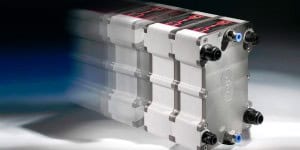
The alliance of Daimler, Ford and Renault-Nissan working on commercialising a fuel cell car has hit a road block as Renault-Nissan pull out. The partners had aimed to develop shared components but now decided to focus on electric cars first.
Still their involvement in R&D of hydrogen technology will continue despite the alliance of the carmakers from Europe, the U.S. and Japan based in British Columbia having entered a dead end.
Renault-Nissan’s latest decision follows the consensus among Daimler and Ford to dissolve the partnership. They had failed the initial target of introducing a serial FCV in 2017.
While Renault and Nissan want to pour their resources into battery-electric cars for now, they are still expected to cooperate with Daimler and Ford on fuel cell project. Concrete details were not disclosed for now.
The last statement from Ford and Daimler read in this regard: “Both companies will continue to explore ways to cooperate on developing fuel cell stack modules.” Ford‘s plans “will take fuel cell stack development in-house, as well as leverage the supply base,” while Daimler CEO Dieter Zetsche indicated earlier this year that the company will focus more on battery-electric vehicles.
This leaves Toyota and potentially Hyundai as the leader in the field. Japan in particular has been proactive with policies advancing hydrogen infrastructure. According to the state’s ‘Strategic Road Map for Hydrogen and Fuel Cells’ the country’s aim is to set up 160 stations and to have 20,000 FCEVs on the streets by 2020 reportedly.
China however recently announced their plan to advance hydrogen and fuel cell technology as well.
